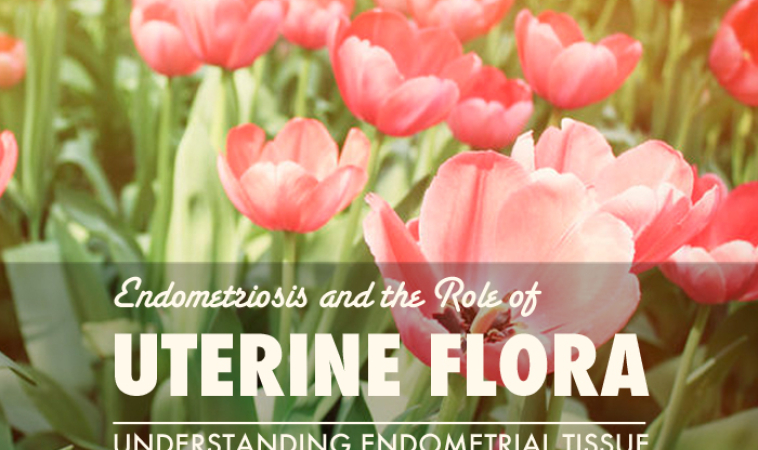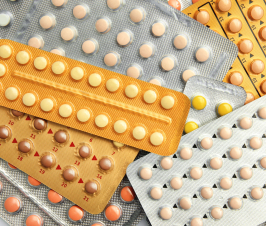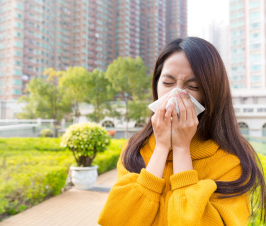Understanding Endometrial Tissue
Endometriosis is a condition that affects women of childbearing age where the endometrial tissue, the lining of the uterus, is found outside of the uterine cavity. When this tissue proliferates or attempts to slough off just like it would in a normal menstrual cycle, it can cause extreme unbearable pain. Depending on where in the pelvic cavity the endometrial tissue is attached, it can lead to infertility, bowel changes and abdominal adhesions.
Often, endometriosis is a clinical diagnosis based on the symptoms one is experiencing. To fully know if endometrial tissue is outside of the uterine cavity, exploratory abdominal surgery to visualize and biopsy this tissue is definitive. While surgical removal of endometrial tissue and structures being affected including uterus and ovaries offer a temporary fix, this does not ensure permanent resolution as tissue can grow back.
Endometriosis, an Estrogen Dependent Disease, Makes Hormone Regulation a Priority
Aside from surgical removal, endometriosis being an estrogen dependent disease makes hormone regulation a top priority. Often included in long-term management of endometriosis are combined oral contraceptives, using varying doses of hormones to reduce endometrial growth however, break through bleeding and spotting can result. GnRH agonists, gonadotropin-releasing hormone agonists, are helpful for pain management but rapidly deplete bone mass and common side effects include hot flashes. Synthetic progestins are very common to manage estrogen dominating endometriosis effects, however higher doses are often needed to be effective, increasing risks of side effects including weight gain and blood clot risk.
Effective Treatment with the Least Amount of Side Effects is Key
Finding a treatment that is effective with the least amount of side effects is key. An emerging amount of research is evolving regarding the vaginal flora and uterine flora in regards to their pro or anti-inflammatory effects. Specifically, Lactobacillus gasseri OLL2809, was shown to have similar anti-inflammatory pain modulating effects as traditional endometriosis therapies. Lactobacillus gasseri OLL2809 seems to activate natural killer cells, which suppresses endometrial growth, a mechanism also found for the oral progestin medication, Dienogest.1Dienogest, an oral progestin, like other progestins, binds to progesterone receptors helping to reduce estrogen fueled endometrial proliferation.2Natural killer cells, part of our innate immunity, have a profound role in regulating inflammation, making manipulation of this natural anti-inflammatory lymphocyte a consideration in endometriosis pain management.3
Immunomodulatory Effects of the Microbiome Promote or Inhibit Inflammatory Signals
The immunomodulatory effects of the microbiome have been shown to either promote or inhibit inflammatory signals to the body. A study on the digestive flora of female rhesus monkeys with endometriosis revealed lower levels of anti-inflammatory lactobacilli species and higher pro-inflammatory Gram-negative bacteria levels vs monkeys without the condition. 4
Gram-negative Bacteria
Gram-negative bacteria are known to increase lipopolysaccharide (LPS) levels, which induce inflammation. This finding spawned further research to investigate Gram-negative carriers in order to determine what Gram-negative bacteria could be colonizing the uterus in women with endometriosis. The vaginal environment is subject to continual bacterial invasion, including Gram-negative E. coli.5,6
Normal Flora can Infiltrate the Uterine Cavity & Intrauterine Infiltration of Gram-negative Bacteria Could Promote Inflammation for those Suffering from Endometriosis
Just as normal flora can infiltrate the uterine cavity, intrauterine infiltration of Gram-negative bacteria could promote inflammation in women suffering endometriosis. Samples of menstrual blood were assessed for E. coli-derived LPS induced inflammatory markers, known to be elevated in endometriosis. It was found that women with endometriosis had significantly higher E. coli concentrations in menstrual blood compared to healthy controls. E. coliconcentrations aside, other inflammatory markers were found to be much higher in endometriosis menstrual blood samples.
This “bacterial contamination” hypothesis for endometriosis risk and outcome will hopefully inspire further investigation into other ways of treating and looking at this debilitating disease.7
The Microbiome Project Sparked Interest in how Normal Healthy Flora Influences Health in the Body
With millions of women being diagnosed with endometriosis each year, further research is needed into risks of development and how mitigate proliferation of the disease. The microbiome project has sparked interest in how normal healthy flora can influence health not only in the gut but elsewhere in the body. This is a perfect place to focus our attention when it comes to pelvic diseases including endometriosis.
 Dr. Ashley Burkman received her Doctor of Naturopathic Medicine degree from the National University of Health Sciences in Chicago. She is deeply rooted in classical naturopathic medicine, practicing the belief that the human body has an innate ability to heal itself. She works with patients toward lifestyle adjustments in order to bring about long-term health. Viewing the body as an integrated whole and addressing all aspects of what determines health is the cornerstone of both naturopathic medicine and Dr. Burkman’s practice.
Dr. Ashley Burkman received her Doctor of Naturopathic Medicine degree from the National University of Health Sciences in Chicago. She is deeply rooted in classical naturopathic medicine, practicing the belief that the human body has an innate ability to heal itself. She works with patients toward lifestyle adjustments in order to bring about long-term health. Viewing the body as an integrated whole and addressing all aspects of what determines health is the cornerstone of both naturopathic medicine and Dr. Burkman’s practice.
Dr. Ashley Burkman is a licensed naturopathic physician in the state of Connecticut. Commitment to the growth of her profession has lead her to participate in the several campaigns to expand the scope of practice of naturopathic physicians in several states. She is also a member of both the Connecticut Naturopathic Association and American Association of Naturopathic Physicians.
Dr. Burkman, an Iowa native, enjoys perusing local farmers markets, spending time with friends and family, and searching for new hiking trails to conquer. She attends comedy shows and baseball games regularly and has a soft spot for cats.
Dr. Burkman and Dr. Lauren Young practice as fully licensed Naturopathic Physicians at Connecticut Natural Health Specialists, LLC, in Manchester, CT. Most major health insurances accepted. New patients are encouraged to call for an appointment.
References:
- Uchida, M, Kobayashi, O. Effects of Lactobacillus gasseri OLL2809 on the Induced Endometriosis in Rats. Bioscience, Biotechnology and Biochemistry. 2013;77(9):1879–1881. doi:10.1271/bbb.130319.
- Schindler, A. Dienogest in long-term treatment of endometriosis. International Journal of Women’s Health IJWH. 2011:175. doi:10.2147/ijwh.s5633.
- Vivier, E, Tomasello, E, Baratin, M, Walzer, T, Ugolini, S. Functions of natural killer cells. Nature Immunology Nat Immunol. 2008;9(5):503–510. doi:10.1038/ni1582.
- Bailey, MT, Coe, CL. Endometriosis is associated with an altered profile of intestinal microflora in female rhesus monkeys. Human Reproduction. 2002;17(7):1704–1708. doi:10.1093/humrep/17.7.1704.
- Halme, J, Becker, S, Haskill, S. Altered maturation and function of peritoneal macrophages: Possible role in pathogenesis of endometriosis. American Journal of Obstetrics and Gynecology. 1987;156(4):783–789. doi:10.1016/0002-9378(87)90333-4.
- Deb, K, Chatturvedi, MM, Jaiswal, YK. Gram-Negative Bacterial Endotoxin- Induced Infertility: A Birds Eye View. Gynecologic and Obstetric Investigation Gynecol Obstet Invest. 2004;57(4):224–232. doi:10.1159/000076761.
- Khan, KN, Kitajima, M, Hiraki, K, et al. Escherichia coli contamination of menstrual blood and effect of bacterial endotoxin on endometriosis. Fertility and Sterility. 2010;94(7). doi:10.1016/j.fertnstert.2010.04.053.

















